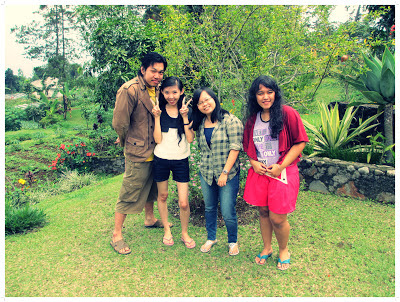Book Review
The Cost of Discipleship
by Dietrich Bonhoeffer
Bonhoeffer, D 1995, The Cost of Discipleship, Touchstone: New York. 316 pp.
“Only he who believes is obedient, and only he who is obedient believes” (p. 63) may sum up the whole theology of discipleship presented by Bonhoeffer in this book, since these two propositions appear again and again as the emphasis on how faith comes from obedience and obedience generates faith. These two must come together because if we only focus on one of them, it might result in either the danger of “cheap grace” or “salvation through works”, which is the false interpretation and understanding of following Jesus (p. 68). Using the Sermon on the Mount in the gospel of Matthew, Bonhoeffer portrays his view on how discipleship is supposed to be applied in the light of free grace, yet costly. This book review will focus more on how to respond to Bonhoeffer’s view through physical, emotional, and spiritual dimension personally, existentially, and theologically.
Bonhoeffer defines cheap grace as “the preaching of forgiveness without requiring repentance, baptism without church discipline, communion without confession, absolution without personal confession. Cheap grace is grace without discipleship, grace without the cross” (pp. 43-47), basically like we enjoy parking our car under the rain and has this grace wiper to wipe the water on and on, just to let it be wet again, that “grace alone does everything, and so everything can remain as it was before”. On the other hand, costly grace is like once we have our car wiped, we take action and drive to the dry place, trying hard to keep it dry, or as described nicely by Bonhoeffer, “the treasure hidden in the field; for the sake of it a man will gladly go and sell all that he has, the gospel which must be sought again and again, the gift which must be asked for, the door at which a man must knock.” He then adds that such grace is costly because we are called to follow, but it is grace because it is Jesus whom we follow. This grace costs His life, but it gives us life. It condemns our sins but justifies us the sinners. Therefore, this costly grace is to be protected and valued, not to be thrown away just because it is free (p. 47). Basically if I may illustrate his principle, it looks like this.
According to Bonhoeffer, obedience means “to rely on Christ’ word and cling to it as offering greater security than all the securities in the world” (p. 79). Emphasizing on the importance of this grace, he challenges us to think whether we have treated grace cheaply all this time. It is dangerous to be too left because it is cheap grace, but it is dangerous to be too right because it is legalism. He asserts that the ways we reason and negotiate with the Scriptures, although sometimes may not be intentional, look like we have tried to fit the Scriptures into our own comfort. Yet, he also states that the real problem is when we put so much “burdensome rules and regulations, false hopes and consolations – that it has become extremely difficult to make a genuine decision for Christ”. Preaching is so hard to understand, overburdened with ideas and expressions. So many people come to church with a genuine desire to hear what we have to say, yet they are always going back home with the uncomfortable feeling that we are making it too difficult for them to come to Jesus” (pp. 35-36). So is it too easy or too hard, how easy is too easy so that it will not be cheap grace, and how hard is too hard so that it will not be legalism?
Meanwhile, from how he treats the Sermon on the Mount, he looks like taking it quite literally, yet he made a good point about degrading Jesus’ words by giving the example of father who asks his child to sleep in the case of obedience (p. 81). This challenges me to think whether we have seen obedience and grace lightly all this time, as he suggests, that “we are trying to evade the literal obedience”, and whether there is a need to change, since Bonhoeffer believes that “we must take the call of discipleship more seriously than ever” (p. 49). So, is it true that by not taking Jesus’ commands (sometimes literally), we have misinterpreted the Bible and failed to be obedient? Or does the ways to treat it differ depending on the aspects of life?
The Sermon on the Mount covers so many aspects, including community, righteousness, relationship, lust, truthfulness, revenge, love, rituals, and devout lives, which I am going to categorize into three dimensions, physical, emotional, and spiritual. So, the first dimension I am going to talk about is this physical context in becoming disciple. Jesus was talking about being the salt and light of the world, which I believe include sharing the gospel to those who haven’t heard. However, seeing it from the physical perspective, how far should we go in obeying His command to share the good news? Seeing it from the fact that Bonhoeffer died as a martyr (Robertson, 1966, pp. 10-12), he took this quite literally. As he states (pp. 60-62) that “if needed, the law must be broken for the sake of Jesus. Our faith cannot mean sitting and waiting anymore”. Should then Christians unite and destroy ISIS? If we say “No, it’s not wise, that’s not what Jesus wants”, are we treating grace cheaply, not willing to lose the lives which actually do not belong to us anymore? I think the case of obedience applies when we are sure Jesus wants us to do something and we have to choose whether to obey or not. It is true that “suffering is the badge of true discipleship”, and that in order to pass suffering, it has to be endured, just like how Jesus drinks from the cup of wrath (pp. 91-92). However, we also can learn from the gospel (like in Matthew 10:23) that we should not rush and seek martyrdom, because He does not call us to intentionally try to lose our lives, yet He expects us to be willing to lose it for Him.
The same case as money, which is an important issue since long time ago, and gets worse nowadays. How should we deal with it as His disciples? Should we work and give our money to people, because we believe God will provide for us anyway? As long as we have enough then we can share the rest. However, if every Christian think this way, then there will be no source of funding, because all this time actually Christians support each other financially in the mission field. Then what does it mean to be disciples when dealing with lust? It is natural and biological as human. I knew that when Jesus said cut your part of body he doesn’t mean it to be literal (or did He?), Bonhoeffer also questions that. I believe it is an act of obedience to choose abstinence before marriage. It is an act of obedience to immediately repent when it is in our mind. It is obedience to not compromise and put ourselves in temptation. But to not really think about it all, I don’t think that is possible, because temptation is always there no matter how hard we try to avoid it.
The second dimension is to see it within emotional context, this includes relationships and feelings, and interests. We as humans have to deal with emotions every day, and Jesus also mentioned about it. How we shouldn’t revenge and instead, love our enemies. How we should stop judging others and instead, love them. How we should let go our anxiety, and instead, love His plan. These things cannot be done except by our willingness to obey Him, and I understand that. How we should forgive someone, and “give another cheek”. But does that mean we allow them to hurt us over and over again? Should we stop pursuing our own happiness and desire, and instead, love what God loves. How does we apply obedience here? Do we then have our own value of existence? Shall we follow our interest? Does it even matter?
Seen from the existentialist’s point of view, Jesus does demand “authentic individual obedience” and the worst that can happen to human is losing ourselves (Macquarrie, 1973, pp. 20-21). We are not supposed to be afraid to lose our lives, but how about us as a person in our existential being? Jesus lost His life, but not His name, memory, authority, desire to love us, interest in ministry, etc. He did not lose Himself. Then the question is, if everything is about God, is there anything about me at all? Because I believe that our interest, hope, intelligence, sexual desire, and talent are not random things, as long as we subject them to Christ, those are put by God in our hearts in order to glorify Him.
The third dimension I am looking at is spiritual which I use to categorize everything related to our devout lives, like prayers and religious rituals as mentioned there. Jesus points out the tendency for us to pray in front of people, the way we show people that we are fasting, and He mentions us to keep the secrecy, or the hiddenness of prayer as stated by Bonhoeffer. However, it doesn’t mean that we cannot pray in public at all. The problem is not the place of prayer, but the fact “that they may be seen by men” (Geisler & Howe, p. 334, 2008).
From those three aspects of our being, I think the way we deal with Jesus’ words depends on our motivations and perspectives in our existence as a human being. If we have right motivations and perspectives, with the Holy Spirit dwelling in us, we will have this wisdom to know His will and obey that. By treating grace cheaply I think we just act like the guest without proper garment in the parable of the Wedding Banquet (Matthew 22). Surely we are still sinners and will still stumble along the way, but wouldn’t our hearts desire to seek what is pleasing God if we love Him? Therefore, I believe that the right motivations and perspectives lead us to obedience that generates faith.
In conclusion, faith requires obedience because it is the first step, and obedience requires faith because discipleship is not limited to what you can comprehend, as Luther said that “it must transcend all comprehension” (Bonhoeffer, pp. 93-96). Therefore obedience comes from within, from our Spirit (spiritual), to our soul (emotional), and body (physically), with the right motivation and perspective. Like how we can know whether we have been too left or too right, too cheap or too legalistic, all depends on what motivates us to do something and how we see it, because for me obedience comes as a result of a humble heart, while legalism is the contrary.
Bibliography
Bonhoeffer, D 1995, The cost of discipleship, 1st ed, Touchstone, Simon & Schuster, New York.
Geisler, NL & Howe, TA 2008, The big book of Bible difficulties: clear and concise answers from Genesis to Revelation, Baker Books, Grand Rapids, MI.
Macquarrie, J 1973, An existentialist theology: a comparison of Heidegger and Bultmann, Pelican books, Penguin, Harmondsworth, England.
Robertson, EH 1966, Dietrich Bonhoeffer, Makers of contemporary theology, Carey Kingsgate Press, London.


































